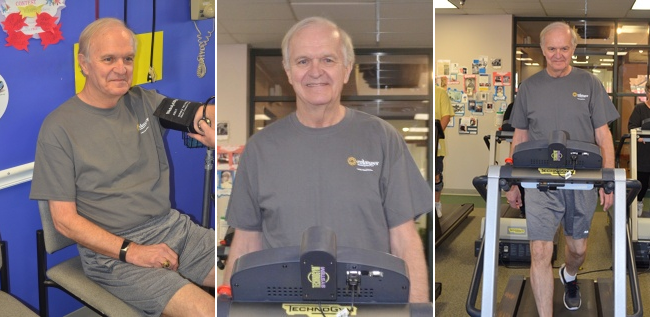Did you know heart disease is the leading cause of death for people in Tennessee? According to
the American Heart Association, 1 out of 4 deaths is attributed to heart disease in our state.
We all know good habits, like regular exercise and a low-fat diet, can make a big difference to our heart health – especially as we grow older. The experts at the Erlanger Heart and Lung Institute would like to share important information on how to keep your heart and circulatory system in the best possible shape.
The signs of an aging circulatory system
When everything is working properly, your heart and blood vessels supply oxygen-rich blood to the body. However, as people grow older, circulatory systems show signs of wear:
- The heart weakens, resulting in less oxygen and a slower heart rate.
- Blood thickens, which decreases blood volume and makes the heart pump harder.
- Artery walls become less flexible, which makes it harder for blood to circulate and often raises blood pressure readings.
These age-related conditions can lead to numerous chronic heart problems, including angina, heart valve disease, artery disease, stroke and congestive heart failure. They can also contribute to heart arrhythmia – when the heart beats unevenly or at an unhealthy rate.
What you can do to prolong your heart health
While you may not be able to stop your circulatory system from aging, you can control factors that contribute to heart problems.
- Don’t smoke – Smoking can reduce oxygen levels, increase your heart rate and blood pressure. This is also true for people who breathe second hand smoke.
- Achieve a healthy weight – If you’re overweight, you’re more likely to have high cholesterol, type 2 diabetes or high blood pressure. These can all lead to heart disease.
- Manage your cholesterol – Cholesterol can create fat deposits and plaque that narrow the arteries. Low-fat diets that are high in fruits, vegetables and fiber can help improve your cholesterol readings. If diet isn’t enough, medications can also control your readings.
- Maintain a healthy blood pressure – High blood pressure can damage the heart and narrow the arteries. You can help lower your blood pressure through exercise and/or medication.
- Exercise regularly – Like any muscle, your heart need a good workout. Aerobic activities, like walking, running, biking or stair climbing, contribute to your heart health. Seek the advice of a health professional to determine what level of activity is best for you.
The new Erlanger Heart and Lung Institute offers an exclusive team of world-class physicians and a range of minimally invasive procedures to correct chronic heart conditions. To schedule an appointment, contact us at 423-778-5661 or visit us online.







